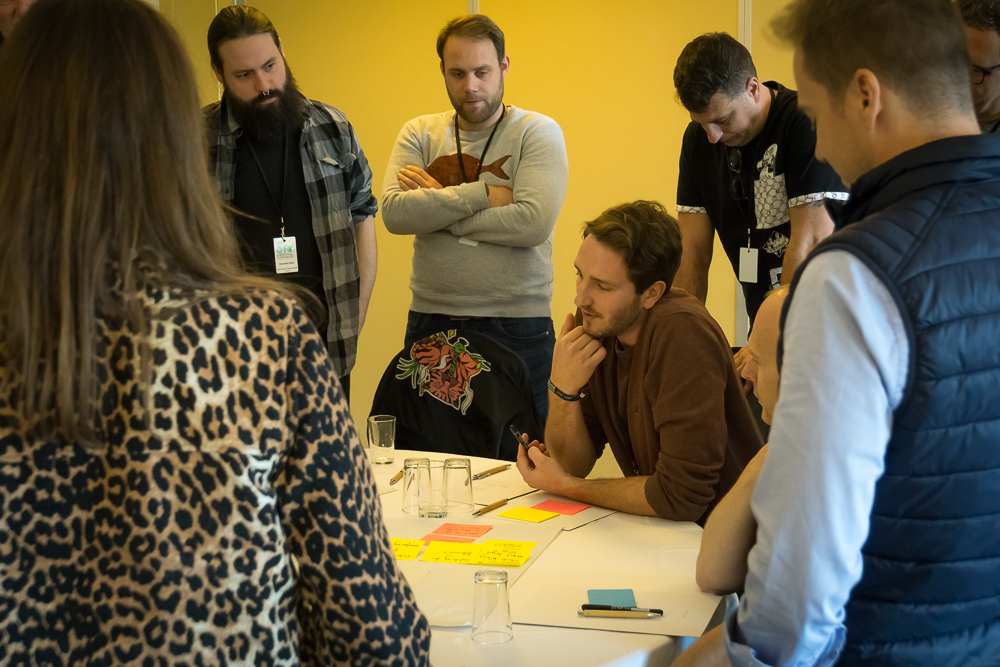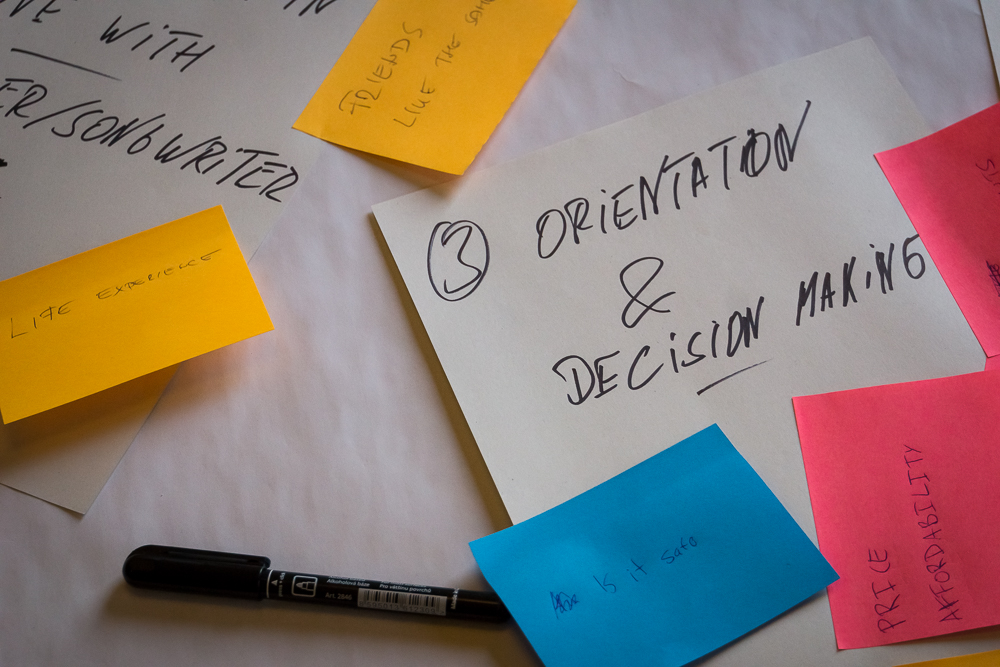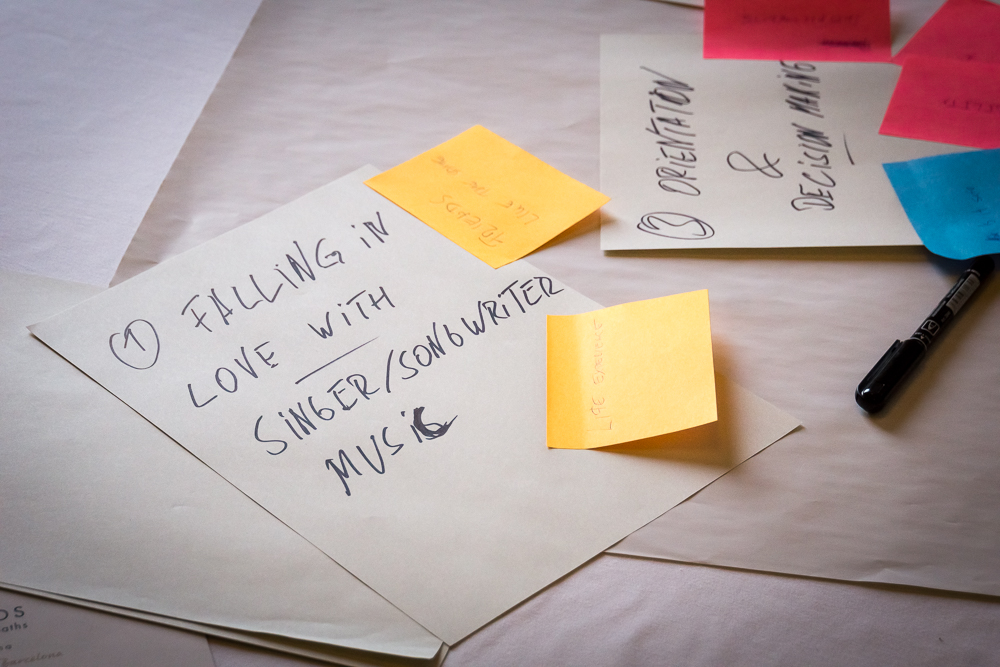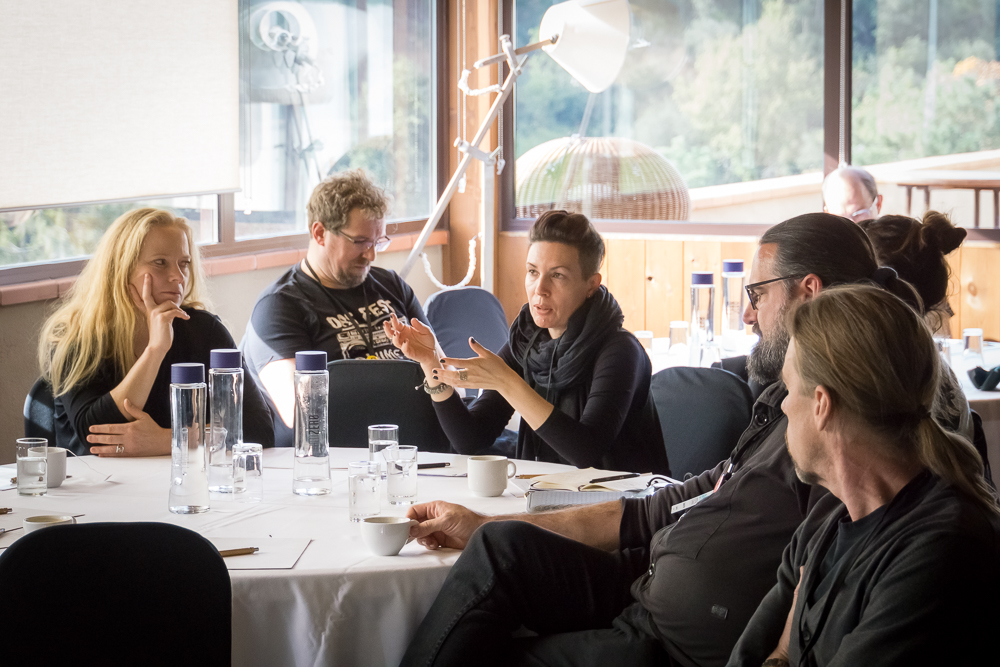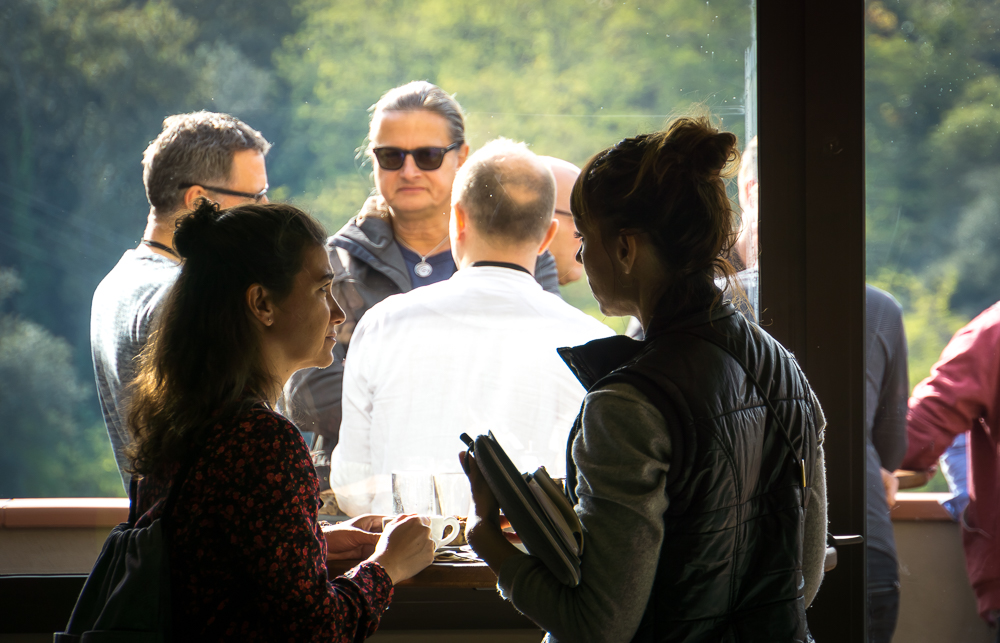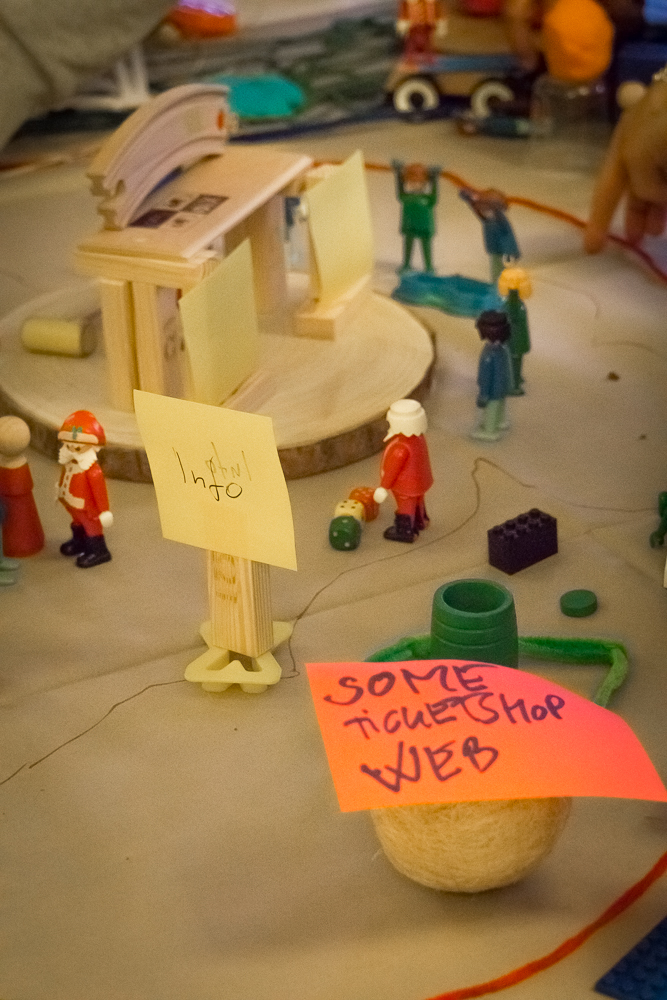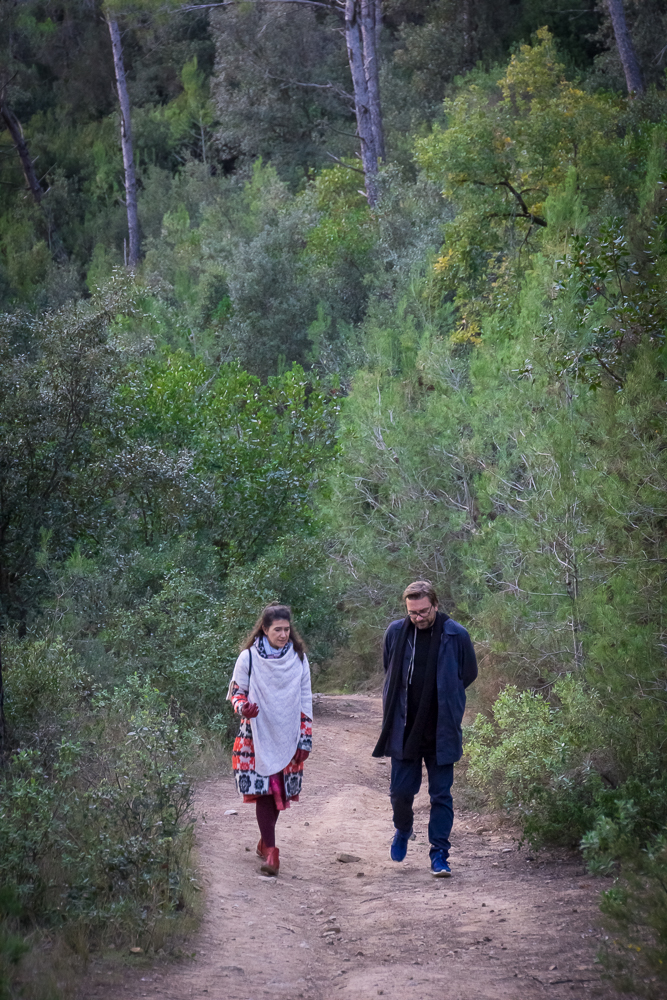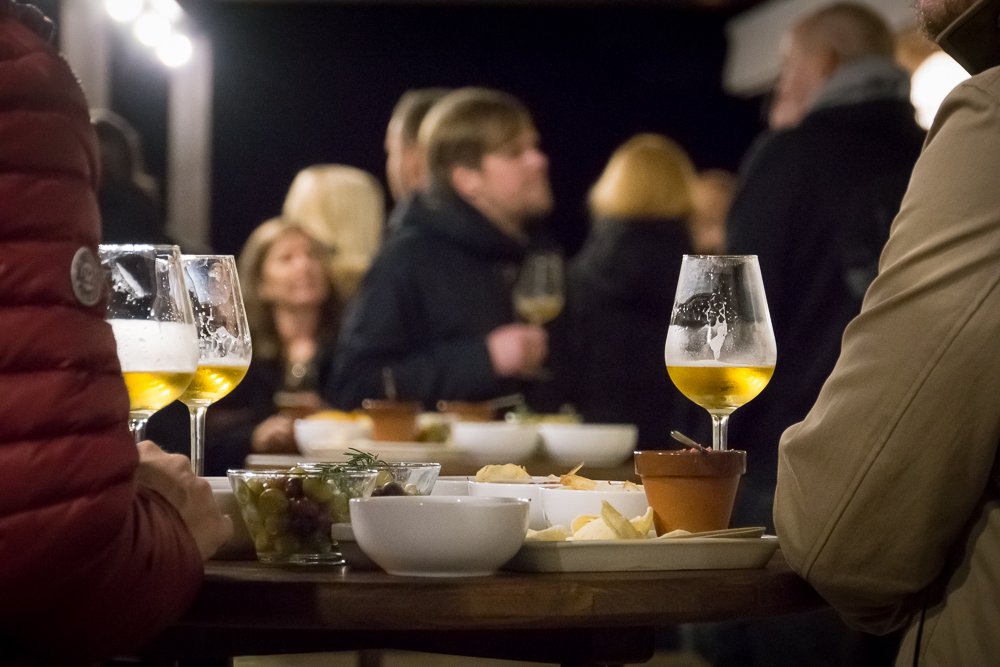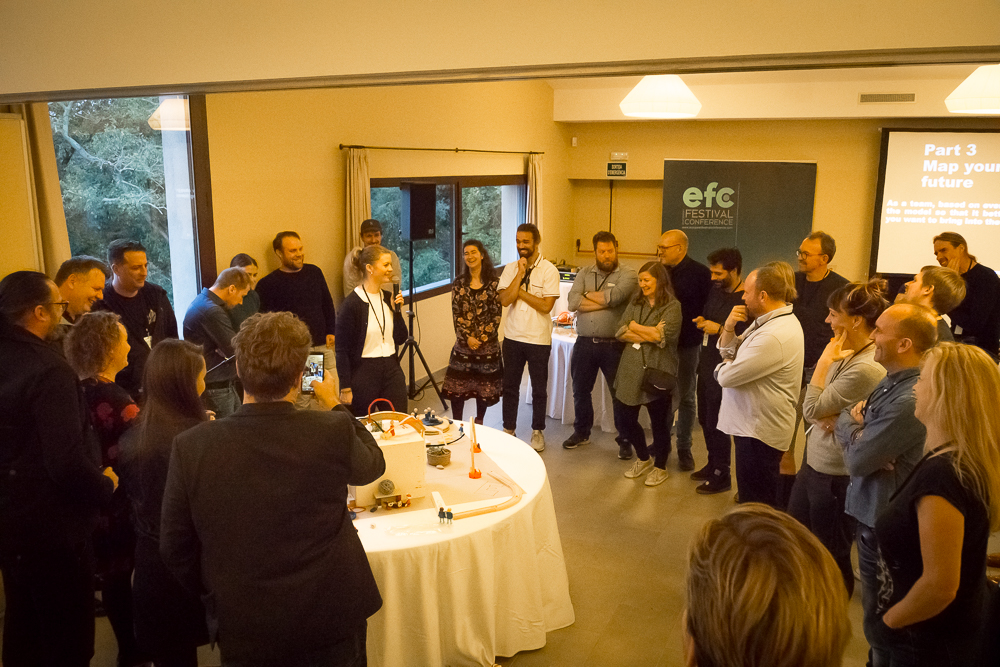We sat Wacken Open Air in one room with Lollapalooza, EXIT Fest, Roskilde, Sziget, Open Air St. Gallen, Primavera Sound, Metaldays and Summerbreeze festival. This is what happened!
text Johannes Jacobi
editing Robin Hartmann, Sonni Winkler, Isabel Roudsarabi
photos Yourope
reading time 8 minutes
The headline for the European Festival Conference in Barcelona in November of 2019 could have sounded something like that. As members of YOUROPE, the European Festival Association, a lot of international events are in constant contact and meet for a weekend every other year, to discuss the big issues of the industry.
Head of this conference is Christof Huber. He is organiser of Open Air St. Gallen and other festivals, has been a board member since 1998 and has since not only fought for his own problems and wishes, but also for those of all of (festival-)Europe.
We met the Swiss about a year ago in Barcelona and talked to him about Yourope and his beginnings as an event-organiser, and also gathered some pictures from last years conference.
Editors note: The interview was conducted in autumn of 2019 and thus does not mention the current Covid-Pandemic.
How did you end up doing what you're doing right now?
The will to do what I'm currently doing – it was there from the very start. I remember taking my first notes about what I wanted to organize when I was maybe 14 or 15. It took a few more years before I finally took this path professionally, but I already knew this is where my passions lie. I started organizing parties and concerts myself when I was still in secondary school. There were some failures, too, of course. So when I left school at first, I started a regular apprenticeship to become a banker. I felt like I needed to learn about the commercial side of things, and a bank setting offered the best education in the field.
So you already knew, that ...
Right. I knew already that I would leave the bank after three years. So in 1989, I finished my apprenticeship. At that time there were two possible event and promotion agencies in Switzerland I could technically apply for. I tried messaging both of them, but they neglected me immediately, suggesting they could not make any use of somebody with a formal commercial education. That's why I decided to take a detour: My first job was in travel advice, because I thought I might go traveling sometime. That again supported my interest in promotion and organizational strategies. So afterwards, I switched offices for a student association that organized graduate congresses. That was a great time in my life.
How old were you then? 20?
Yeah, about 20 – it was very exciting, we organized some pretty big events and I actually ended up doing exactly what I wanted for a while. However, soon I decided to travel America quite spontaneously – simply to get away from home for a little while. And when I got back, I started working as an accountant again because I had to leave the other job behind. Eventually my former colleague from the student union, Lisa, called and told me she was working as an assistant at OpenAir St. Gallen and that they were currently hiring. So I kind of went crazy, traveled straight to St. Gallen and had the job interview of my life. I started to work there in 1993.
What was your position there?
I worked as an assistant to the festival director. I already knew the festival as a visitor and it had always been my dream to work for them. That's why it didn't matter to me at all that I had to make some financial sacrifices.
My father asked me back then whether I was going nuts.
My relatives weren't able to understand and support my decision because they are all rather conservative. It wasn't easy for me in the first few months either. Not everything went according to plan initially, but I decided to give it 120% anyway so we could still be successful. I just realized that this is my chance. I got this job, and I loved it, and I knew I was where I always wanted to be. I think that was also the point at which Andreas became my mentor. He immediately noticed that I was interested in influencing his booking decisions a little.
Can you elaborate?
Andreas Müller was the festival CEO at that time, and I remember in 1994 it was all about Rage Against The Machine and how some of my colleagues thought they didn't really fit into the program. But I was able to assert booking them, and that decision eventually became a kind of kick-starter for the festival. Andreas also sent me out toward London very early on to do some face-to-face door knocking – because we didn't yet have any contacts over there and everything was still done through national agents. I've known agents like Alex Hardee and Mike Greek for many years now. So back then, I basically sat in their anterooms for a really long time and worked on establishing these contacts. Through Andreas, I slowly came into the bigger picture while he removed himself over time. With his support, I was eventually able to take over his company and the adjacent agency. When it happened, I managed both for three years. At that time he still owned them, but he no longer worked there.
How old were you around that time?
I must've been 27 or 28. The whole thing developed in such a way that I was able to buy the company in the end. The festival itself was still in some financial troubles back then. But my mindset somehow always has been that of an entrepreneur: If there's a way to get involved, I will. And I did so again and again these years. I took the financial risk, and in the end it paid off.
As an entrepreneur you always see the world around you through some kind of tunnel vision. How did you end up thinking a few steps ahead and about how to connect the festival industry – something that eventually lead to Yourope?
Yourope was founded in 1998. During that year, at a festival meeting of the IMC in London, I got a bit too confident and ran for a seat, but to my surprise succeeded and got elected to the board. I was very convinced of my own ideas – simply a naive guy who wanted to make a difference. This was my industry, after all. Back then I got to know and appreciate people like Leif Skov from Roskilde, and soon decided to put it all in the balance – merely because it had always been my dream to do so.
I feel like your vision was to really shake up the industry – not only through your own event ...
I've always been a very vocal person. I've never been able to adjust too well when it comes to having a diplomatic approach to something. Instead, I wanted to make a difference for the festival scene. In the beginning, Yourope had to go though a lot of setbacks – it just didn't go anywhere. Five years later, I finally developed a proper concept. I proposed to resign from the board in case we wouldn't immediately hire someone to really get things going. Someone who would get a fee, who would then be assessed for his or her work.
Were there already any official grants in place at that point?
No, I believe we have always been our own makers and judges, even today. We are still only loosely anchored in the EU, because we initially decided to just do things without any commission. At the same time, many festivals in the European West are being labeled as commerce. So why should they be subsidized?
That's the exciting thing about Yourope in my opinion. There's plenty of important festivals collaborating here, and all of them are united by the same drive or the same values. Everybody wants to get involved.
We don't only love and live for our festivals 365 days a year, we also suffer with them.
We keep watering this plant despite all its vermin and I think that's the main difference. We all have a passion. Maybe that's exactly what distinguishes us from some of the other festivals. I admire Roskilde, for example – how they have been doing what they do for years. But there's other festivals as well, like Wacken Open Air or Exit Festival, that I appreciate deeply. These are some huge independent festivals by themselves, yet they want to make a difference – they want to improve the scene as a whole.
Something else that's important: These festivals are aware of their influence. Every mayor festival – I think – has an incredible and potentially transformative power, but only a few of them really use it to a charitable end.
I agree. Being faithful to our code of conduct, Yourope has finally developed into an organization that houses both friends and a perpetual source of support. However, we don't talk much about the business side of things – we really don't. At the core of it we feel like we're on an endeavour to improve Europe. I know that sounds pretty cheesy, but that's really it for many of us. We want this to be a better world, and I think that's essentially a great approach.
That's also why I feel so comfortable with all these people around: They mean what they say, they hug you when necessary and they don't mind crying as well – and they try to carry this community idea forward.
However, that's why we sometimes have such a hard time in this business, too: When it's suddenly all about austerity and the money only, it gets to us, because we just don't see ourselves being part of that.
What came first in the development of Yourope: The European Festival Awards or the conference?
The Festival Awards came first. At that time only Virtual Festivals Europe existed; a hub for European festivals. The idea was to become part of it and develop a European festival guide. We had a test phase that took three years until we decided we would need the Festival Awards to advertise ourselves as Yourope in Europe, and to appeal to new members. It worked very well, just like the festival conference – although they were never subsidized by anyone. And yet everyone was keen to get it up and running. Time and time again I end up asking whether we should continue to take the risk and everyone's feedback is always: "Yes".
Do the membership fees flow into every event and if money is missing on top, you just agree to make a deficit?
No. We manage to make ends meet somehow. We've also built up a few reserves over the last few years generated by the festivals. And even if the conference might be running up a deficit, it is worthwhile for us as a source to define where this train is headed every other year. I think that's a decent approach: To single out which topics are important. It doesn't always have to be about the commercial aspect. That's why we simply have to keep working and convince as many festivals as possible through our honest work. To anybody approaching us who agrees to engage with others and be open-minded, we can offer full access to a network and thus some potentially helpful friends for the future.
That's how I met my wife, for example – and ended up establishing some incredible partner- and friendships in these past 20 years.
Are you at all afraid that the congress may be too exclusive, meaning it would be difficult for newcomers to enter – for example small and medium-sized festivals?
That's a problem I am trying to raise awareness for. It's essential to convince new members. We have to keep asking ourselves whether we should switch-up the board, and how to proceed with Take A Stand, the Go-Group, or the Yes-Group. There's also always festivals that enjoy Yourope memberships but never join any meeting – it just doesn't work that way. Ivan from Exit Festival, on the other hand, came to us requesting to help improve both their festival entrance and security. So Chris Kemp just took a plane to Exit and did that for him. In the meantime, Exit became deeply rooted in our organization. However, all of it started with his request for help, so we helped. That's the point exactly: We have to strengthen our industry and move our festivals forward.
How do you decide which topics will be discussed at Yourope?
We have groups, which are independent from the board, to think about what we ultimately want to bring into discussion. The “Standard Terms”, for example, were an idea taken directly from our members. Their feedback was that the way booking contracts are designed today doesn't work... they couldn't afford to sign them any longer. So we though up uniform clauses to include in all the contracts. There were countless calls with agencies in London and America, I myself went to William Morris [one of the most renown agencies in the world] to talk to them about it, and eventually succeeded.
At some point someone just had to stand up to them.
Yeah, you gotta stand your ground and mediate. What was happening was just not okay.
We all have to have the courage to point these things out.
What are your wishes for the future? Which goals did you set for Yourope?
I think we need to distribute responsibilities differently and more diversely. The overall input simply exceeds our capacities in more recent years. We started in 1998 with 25 people, today we are 100, including ten associated members, many different events etc. And if we want to play a significant role in Europe – in terms of lobbying as well – we need a lot of people to create new structures apart from the daily business. That's the main trouble. Nevertheless, I hope that we can achieve some progress in development, because I am eager to see quality win over quantity and money, and I truly believe we can play a decisive role on the way.
